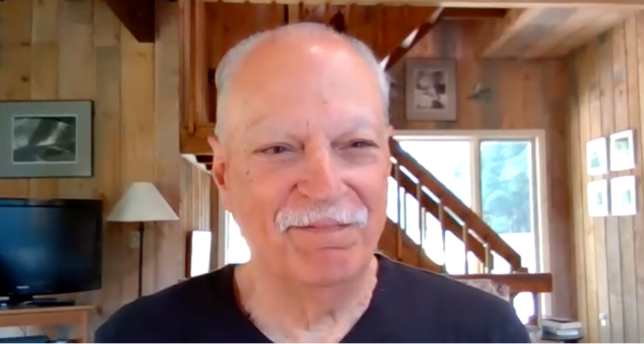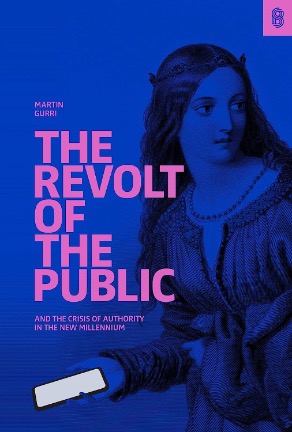Philanthropy
A Conversation with Martin Gurri (Part 2 of 2)
The analyst and author talks to Daniel P. Schmidt and Michael E. Hartmann about philanthropy’s reaction to popular discontent with elites, contemplates the populist future of conservatism, and considers some potential implications of that future for unpopular philanthropy.
 Martin Gurri.
Martin Gurri.

Originally published in 2014—so, before Brexit in Europe and before Donald Trump was elected president in the U.S.—former CIA analyst Martin Gurri‘s book The Revolt of the Public and the Crisis of Authority in the New Millennium did a lot of perceptive presaging. It described in detail and insightfully interpreted the public, technology-assisted reactions of ordinary people against the elite, once-respected, industrial-age institutions of the West. It cogently contemplated whether the formerly information-controlling, increasingly distrusted and resented elite class could meet the many challenges of dealing with such discontent and, if so, how.
In The Revolt of the Public, Gurri specifically includes “endowed foundations and other nonprofit organizations” in his list of those elite institutions ill-exercising authority and “clinging to a shrinking monopoly over its field of play.”
Gurri’s prodigious published work since the book, seemingly constantly updated to take into account the most-recent evidence of widening popular discontent, has remained as perceptive and insightful.
In a Discourse article last month, for example, Gurri—who does not consider himself a conservative—astutely examines the future of conservatism, using the now-underway presidential primary as informative context. Discourse is published online by the Mercatus Center, where he is a visiting research fellow, at George Mason University.
“Just as the Democratic Party today is the home of establishment and reaction, Republicans are the party of populism and revolt,” according to Gurri in the piece, “A Heavyweight Match for the Populist Crown.” He then compares and contrasts Trump’s and Ron DeSantis’ different ways of going about being a populist conservative, and seeking to further populist conservatism. In DeSantis’ case, as Gurri sees it, there is a willingness to “unleash[] government in what might be described as a cultural trust-busting exercise.”
In our case, we wondered whether that might include establishment philanthropy—for either DeSantis or any other prominent policymaker or thought leader on the right, for that matter.
The affable Gurri was kind enough to join us for a conversation earlier this month. In the first part of our discussion, which is here, we talk in general about philanthropy as an elite institution that should be as “on the defensive” against populist discontent as much as all of the other such institutions that have so ill-exercised their authority.
The just less than 13-minute video below is the second part of our discussion—during which Gurri talk about philanthropy’s reaction to popular discontent with elites, contemplates the populist future of conservatism, and considers some potential implications of that future for unpopular philanthropy.
Answering a question metaphorically invoking the timeline of the French Revolution, Gurri tells us,
We’re in the reaction moment. Robespierre has been guillotined. Now the elites are basically saying, no more of that, no more of this revolt-of-the-public stuff. I think the foundations are part and parcel of that. They subsidize views that are very unpopular, but since they bypass the marketplace, they can do that.
Noting that he is “speaking entirely as an observer and an analyst” who “would not presume to tell conservatives what their future is going to be,” Gurri summarizes his Discourse article by saying the Republican presidential primary “is about populism.” Leading contenders Trump and DeSantis are both populists, he notes.
“Trump is a rhetorical populist. He stands outside the system, yelling at it all the time, screaming,” Gurri say. “DeSantis is an insider in the sense that he is successfully dealing with policy” having to do “with the levers of power. He wants to change things from within. He wants to actually impose political change, by passing laws.”
In public discourse, according to Gurri, Republicans and conservatives “live in a little information ghettos,” according to Gurri. “[T]hey have this little ghetto … The left talks to everybody, the right talks only to itself. So the challenge for any Republican, if you want to broaden your base, is how do you break out of the ghetto, right?”DeSantis seems to be saying, Gurri thinks, that “one of the ways I want to do it is I’m going to use the power of government to break up this monopoly. It is a basically a cultural trust-busting exercise. That’s exactly what it is. … How far you can push that, I’m not sure.”
This article originally appeared in the Giving Review on July 18, 2023.




